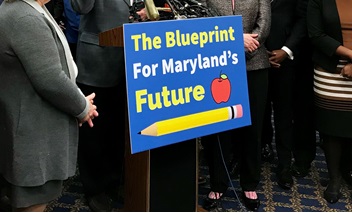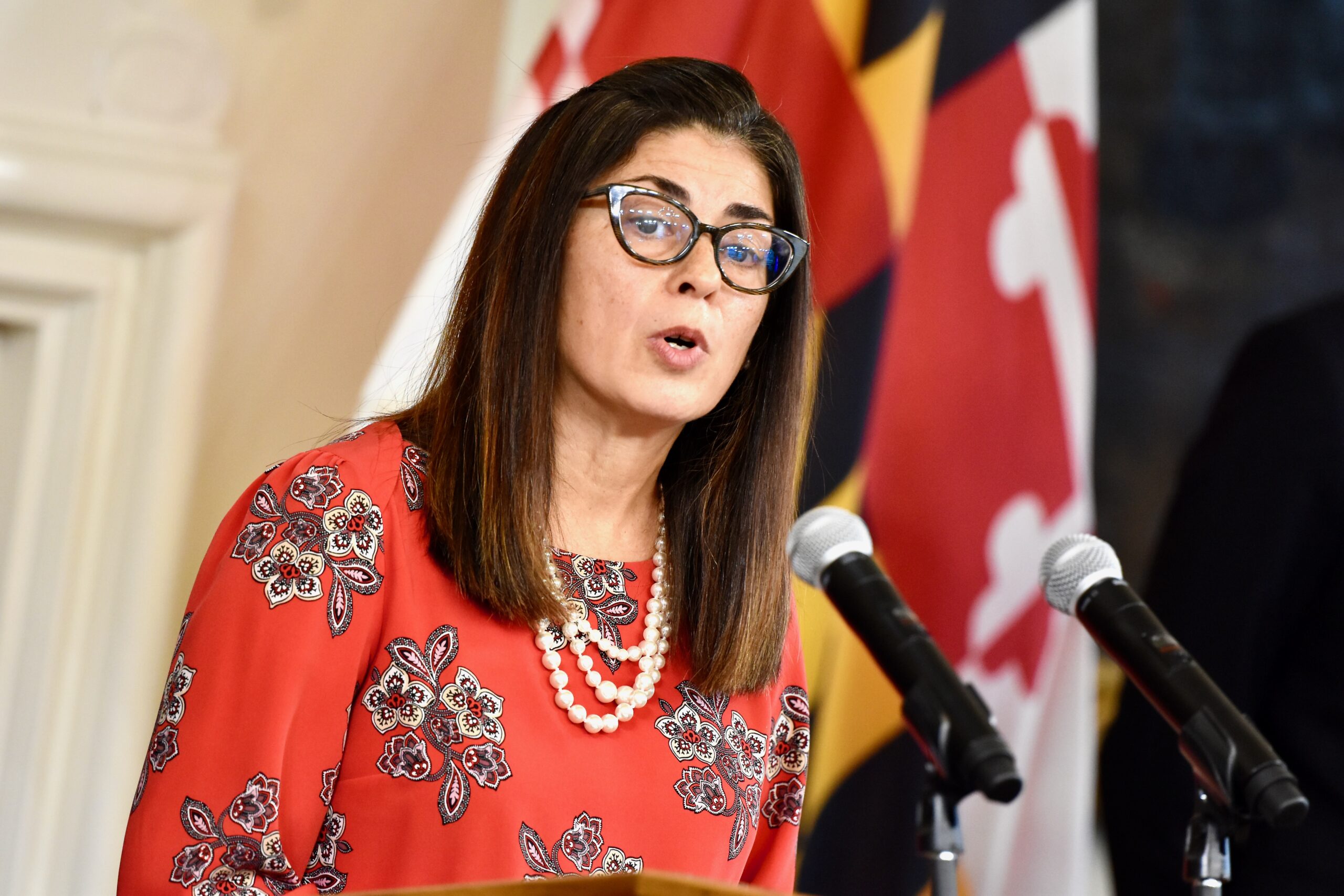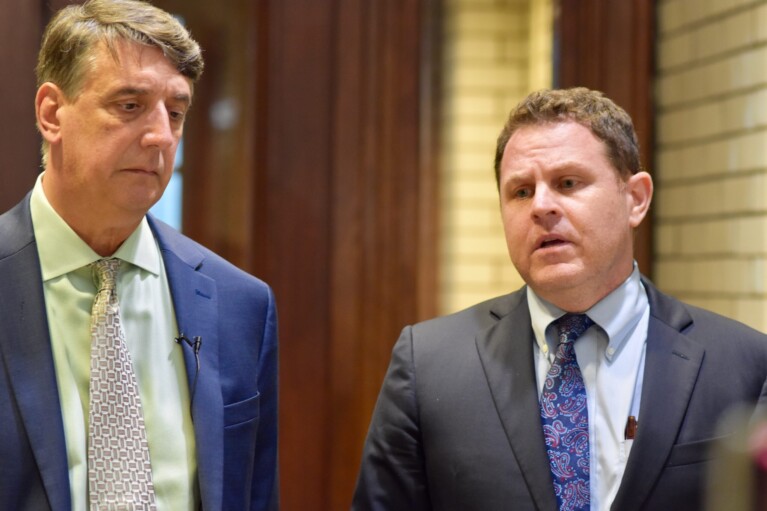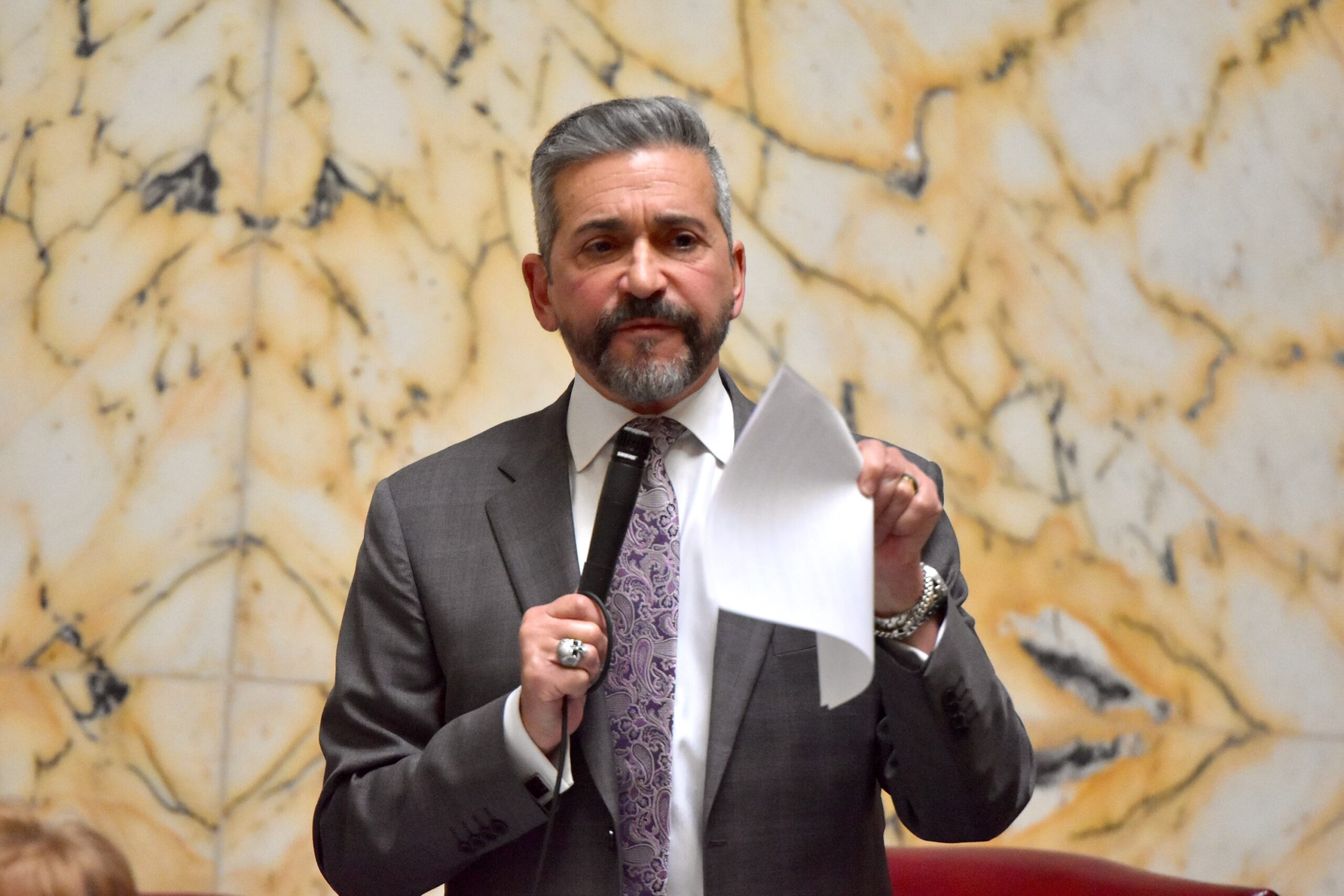
A proposal to infuse state school systems with up to $1.1 billion in new funding over the next three years is zooming through the General Assembly in the waning days of the legislative session.
The Senate voted 43-1 on Wednesday morning to pass the “Blueprint for Maryland’s Future” ― and House committees took up additional amendments and straw votes just hours later.
The bill was expected to formally come into the possession of the House Ways and Means and Appropriations committees Wednesday evening and reach the chamber’s floor ― based on the straw votes ― on Thursday.
The bill, which implements the initial policy and funding recommendations of the Commission on Innovation and Excellence in Education, or Kirwan Commission, is heralded by lawmakers as a first step toward generational reform in Maryland schools.
The bill, as passed by the Senate, aims for a combined $725 million in expanded funding in 2021 and 2022, with an additional $130 million contingent upon revenue legislation passed this year or next year. The General Assembly already passed a fiscal 2020 budget with $255 million in initial funding.
House lawmakers agreed on the spending levels in committee meetings, but also added a handful of other amendments.
The House Appropriations Committee voted in favor of an amendment that makes the creation of a Maryland Office of the Inspector General of Education contingent upon Gov. Lawrence J. Hogan Jr. (R) releasing fenced-off funding for Kirwan initiatives in the 2020 fiscal year. Additional accountability has been a focus of Hogan’s administration, and lawmakers fenced off money from other parts of his budget to find the initial 2020 funding.
Future funding for the Kirwan initiatives pulls from casino revenues, new online sales taxes and other dedicated funds.
The bill making its way through the General Assembly adds funding for the Kirwan recommendations at a far slower pace than the commission had envisioned.
House Appropriations Chairwoman Maggie McIntosh (D-Baltimore City) said the funding levels had been decided based on “a lot of negotiating on this with the Senate and I would say this is fairly prudent.”
Those negotiations with the Senate led to the short-lived consideration of an amendment from the Ways and Means Education Subcommittee.
In an afternoon voting session, a majority of the subcommittee extensively debated an amendment that would have added other certificated school employees who bargain with teachers to a provision for salary increases.
The Maryland State Education Association supported the change, which would have the practical impact of not forcing bargaining units to treat some members differently than others. But others said adding more people to the salary incentive grants would stretch county budgets and reduce the number of counties that offer increases.
While county spending obligations are expected to increase when new education funding formulas are developed before next year, this year’s bill focuses on increased state funding for prekindergarten, special education and grants to poor schools, without new local mandates. The only provision of this year’s bill that could increase county funding is the salary incentive grant to raise teacher salaries: If county school systems set aside 3 percent for salary increases, the state would provide an additional 1.5 percent.
Education Subcommittee Chairman Eric Luedtke (D-Montgomery) said a post-subcommittee conversation with Senate lawmakers made clear that the opposite chamber would not concur with the salary incentive grant change. He encouraged the full committee to vote against the change, which members did.
The full House is expected to pass the bill before the end of the week, which would allow last-minute negotiations or a Senate concurrence before Sine Die on Monday.
Did someone forward this to you?
Get your own daily morning news roundup in your inbox. Free. Sign up here.




 Creative Commons Attribution
Creative Commons Attribution